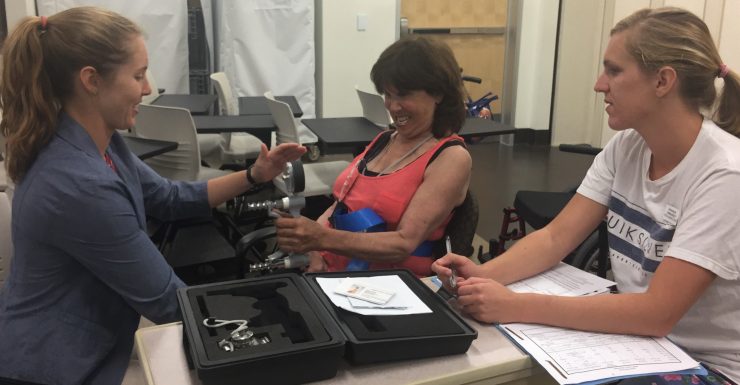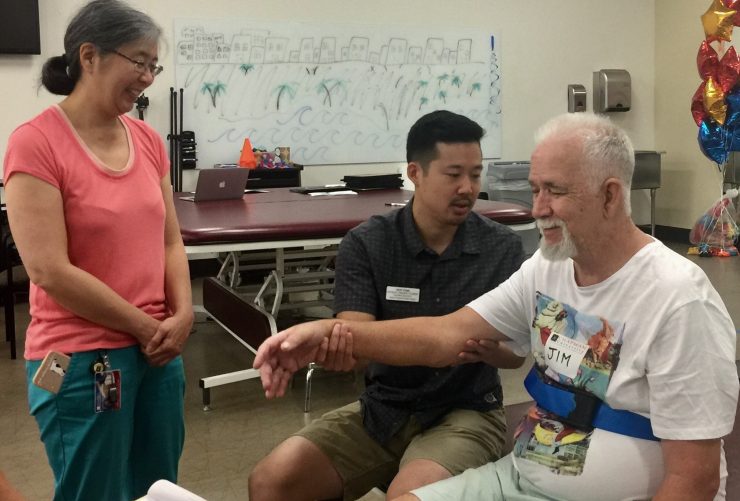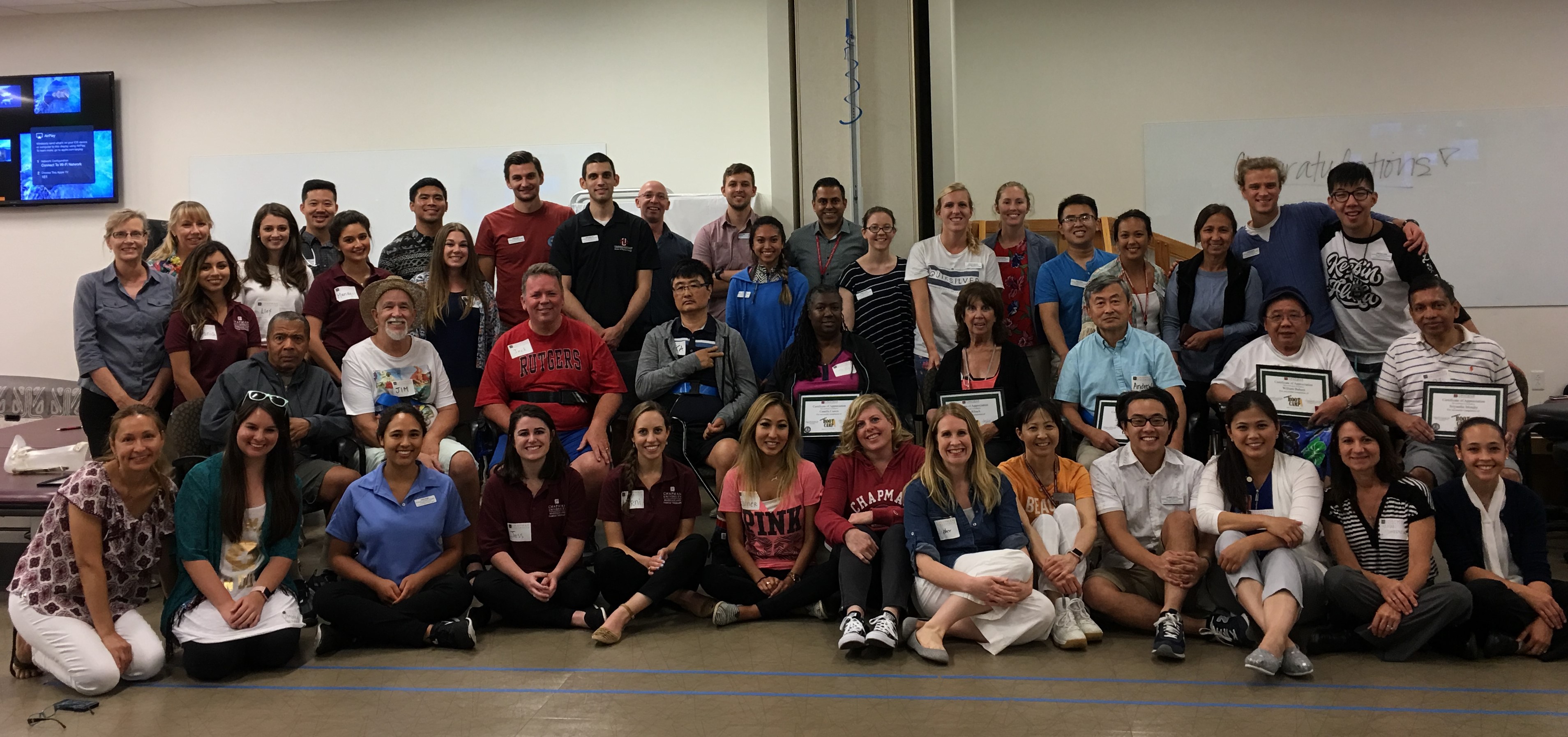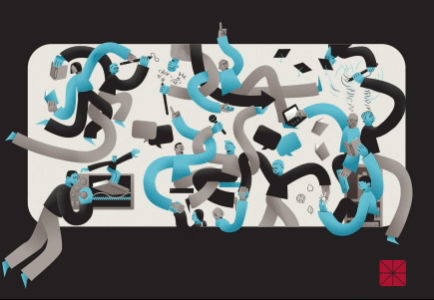It’s been a hard three years since Taka Tsuge suffered the stroke that would sideline him from his beloved career as a sushi chef. Since that day, Tsuge has worked persistently at his recovery, slowly regaining mobility.
But this summer his wife enrolled him in Chapman University’s Stroke Boot Camp, an intensive two-week program designed to boost the progress of people recovering from stroke. Toward the end of the camp run by Chapman’s Department of Physical Therapy, things clicked for Tsuge and his progress soared. His shuffle transformed into a deliberate but steady walk. The range of movement in his shoulder improved.
And then came the Play-Doh moment. Presented with the modeling clay during a fine-motor therapy session, Tsuge says he was immediately inspired.
“I made a little sushi roll and I cut it. I felt like I was at work. It felt really good,” he says.
The chef dissolves into sobs as he recounts the experience and turns to the doctoral students who put him through his paces and measured his progress.
“Thank you, you guys,” he says. “I’m on my way back. I’m so happy.”
He had plenty of company, too. All 10 of the clients enrolled in the camp made significant progress, says Caryn Ito, DPT, assistant professor, and director of the summer program now in its fifth year. By camp’s end, many walked more smoothly or quickly, while others enhanced their independence by fine-tuning motor skills necessary to pull on a jacket or open a door.
Such outcomes are testament to the value of continuing physical therapy, even years after the initial stroke and resulting brain damage, Ito says. All of the participants were at least a year out from their stroke, and for some as much as six years had passed.

“There is tremendous value for ongoing physical therapy for people recovering from stroke well after their initial stroke. The human brain has tremendous potential,” Ito says. “The participants are a testament to this. By the end of the camp, one participant was able to walk three times faster than he did on the first day. There was another participant who played pool for the first time since his stroke, using his involved hand.”
Indeed, he played pretty well.
“I made a lot of good shots,” says Jim Eklund, the renewed pool shark.
His stroke was five years ago, but until the camp his left arm was too weak to be of much use. Now he slowly lifts it aloft, demonstrating his improved muscle tone and strength.

“Very fantastic,” he says with a smile.
For students in the Doctor of Physical Therapy program offered by Crean College of Health and Behavioral Sciences, the camp is a hands-on opportunity to work in a clinical setting while still under the supervision of faculty and community physical therapists who volunteer in the program. While they will have other clinical assignments, most will not have the benefit of watching patients’ progress on a day-to-day basis, a unique advantage of the camp, Ito says.
The experience is also special because graduate students and faculty in Crean College’s Marriage and Family Therapy program offer counseling and support services during the camp. The collaboration makes it a unique interprofessional experience.
Family members come away with their own celebration moments, too. Evelyn Bahani was delighted that, thanks to the therapy he received at the camp, her husband Willie walks with a fuller step, no longer leaning forward onto his toes. It may seem like a minor achievement, but physical therapists say a tipped gait can lead to falls and additional impairments.
“I feel happy,” Bahani says. “It’s been really, really good for him.”
Display image at top/Happy students, faculty and campers on the last day of camp.





Add comment